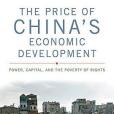內容簡介
The People’s Republic of China has experienced significant transformations since Deng Xiaoping instituted economic reforms in 1978. Subsequent leaders continued and often broadened Deng’s policies, shifting the nation from agrarianism to industrialism, from isolation to internationalism, and from centralized planning to market-based economics. As the world strives to understand...(展開全部) The People’s Republic of China has experienced significant transformations since Deng Xiaoping instituted economic reforms in 1978. Subsequent leaders continued and often broadened Deng’s policies, shifting the nation from agrarianism to industrialism, from isolation to internationalism, and from centralized planning to market-based economics. As the world strives to understand the nation’s rapid development, few observers have comprehensively examined the social and cultural price of the economic boom for the majority of the Chinese people. Zhaohui Hong assesses the sociocultural consequences of these reforms in this provocative study. He contends that modern China functions as an oligarchy or plutocracy ruled by an alliance of political power and private capital where the boundaries between the private and public sectors are constantly shifting. This “power-capital institution” based on three millennia of Confucian ideology and decades of Maoist communism exercises monopolistic control of public resources at the expense of civil society and social justice for the majority of citizens. The Price of China’s Economic Development urges policymakers to alter their analytic lens. While industrial and commercial development is quantitatively measured, Hong argues that social progress should be assessed qualitatively, with justice its ultimate goal and fair allocation of resources and opportunity as the main index of success. This sophisticated analysis introduces English speakers to the varied and significant work of contemporary Chinese scholars and substantially

